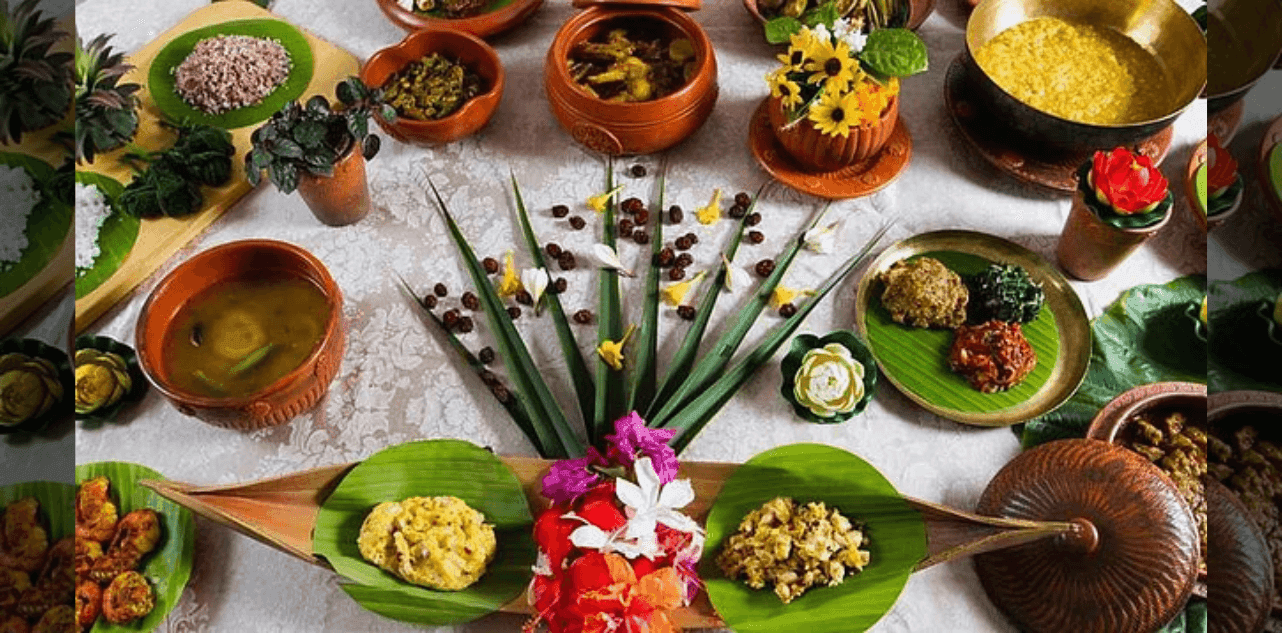Monday 16 February 2026
Poila Baisakh, The Bengali New Year: Feasting and New Beginnings
Share

Poila Baishakh, also called Bengali New Year, is the first day of the month of Baishakh in the Bengali calendar, marking the beginning of the Bengali new year.
It falls around the middle of April in the Gregorian calendar (usually April 14th in Bangladesh and April 15th in India), this festival is a time of immense joy, cultural celebration, and renewed hope for Bengalis across the globe.
It is a public holiday in West Bengal, Tripura, and Assam in India, and a national holiday in Bangladesh.
The origins of the Bengali calendar links to the reign of Mughal Emperor Akbar in the 16th century. During his rule, the Islamic Hijri calendar, a lunar calendar, was used for tax collection. However, its lunar nature did not align with the solar agricultural cycles, which is followed in Bengal, causing difficulties for farmers in paying taxes out of season. To address this deviation, Emperor Akbar commissioned his royal astronomer, Fatehullah Shirazi, to create a new calendar that harmonized the lunar Islamic calendar with the solar Hindu calendar, which was closely tied to agricultural practices.
This led to the introduction of the Bengali calendar, initially known as "Tarikh-e-Elahi" (the divine era), around 1584 AD (corresponding to 1091 in the Bengali era). The new calendar aimed to streamline tax collection according to the agricultural seasons, benefiting both the rulers and the farmers.
The celebration of Poila Baishakh as the first day of this new agricultural and fiscal year gradually evolved over time. During the Mughal era, it became customary for landlords to clear all dues on the last day of the Bengali month of Chaitra (mid-March to mid-April).
The tradition of opening "Haal Khata" (new account books) by traders and businessmen on Poila Baishakh also dates back centuries. On this auspicious day, merchants would close their old ledgers and inaugurate new ones, symbolizing a fresh beginning for their businesses.
Customers were often invited to these events, where they were offered sweets and the business relationship was renewed for the upcoming year.
Poila Baishakh serves as a powerful force for Bengalis worldwide. It transcends religious and social barriers, bringing people together to celebrate their shared cultural identity and heritage. The vibrant festivities, traditional attire, music, and food all contribute to a strong sense of community and belonging.
The "Haal Khata" tradition signifies the hope for a successful and prosperous business year. Prayers are offered to deities like Lakshmi, the goddess of wealth, and Ganesha, the remover of obstacles, for good fortune and success in the coming year.
Wearing New Clothes: One of the most prominent traditions is the wearing of new clothes. People, young and old, adorn themselves in traditional Bengali attire. Women often wear white sarees with red borders, symbolizing auspiciousness, and adorn their hair with flowers. Men typically wear kurtas or dhotis. This tradition signifies new beginnings and the shedding of the old.
Visiting Temples and Offering Prayers: On the morning of Poila Baishakh, many Bengalis visit temples to offer prayers for a prosperous and peaceful new year. Special pujas (worship ceremonies) are organized, and devotees seek blessings from deities for the well-being of their families and communities.
"Haal Khata" (Opening New Account Books): As mentioned earlier, this is a significant tradition for business owners. They open new account books, often after performing a puja at their establishments. Customers are invited to share sweets and renew their business ties. This practice symbolizes the hope for financial prosperity in the new year.
Exchanging Gifts and Sweets: Exchanging gifts and sweets is an important part of the Poila Baishakh celebrations. Families and friends visit each other, sharing greetings and tokens of affection. Traditional Bengali sweets like rasgulla, sandesh, and mishti doi are particularly popular during this time.
Organizing Fairs ("Boishakhi Melas"): Colorful fairs are a hallmark of Poila Baishakh, especially in rural areas. These "Boishakhi Melas" are vibrant gatherings featuring local handicrafts, toys, traditional food stalls, and various forms of entertainment like folk music and dance performances.
Special Food: Food plays a crucial role in the Poila Baishakh celebrations. Special Bengali delicacies are prepared and enjoyed by families. A popular traditional dish is "Panta Bhat" (fermented rice) served with fried Hilsa fish ("Ilish Machh"). Other festive dishes include various curries, sweets, and snacks.
Processions ("Prabhat Pheri"): In some regions, particularly in Bangladesh, vibrant processions called "Prabhat Pheri" are organized on the morning of Poila Baishakh. People dressed in traditional attire sing songs, often those composed by Rabindranath Tagore, and parade through the streets, heralding the arrival of the new year.
Decorating Homes: Homes are cleaned and decorated with traditional items and flowers to welcome the new year. "Alpana," intricate designs drawn on the floor using rice flour paste, are a common decorative element.
Poila Baishakh is a timeless festival that encapsulates the spirit of new beginnings, cultural pride, and community bonding for Bengalis worldwide. Rooted in history and rich in traditions, it continues to be a vibrant and significant event in the Bengali calendar.
Newsletter
Stay up to date with all the latest News that affects you in politics, finance and more.